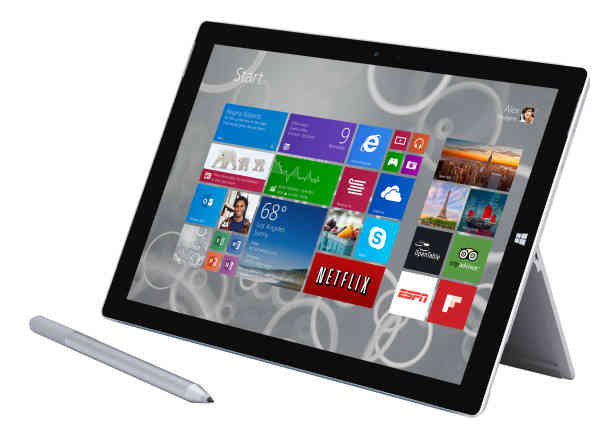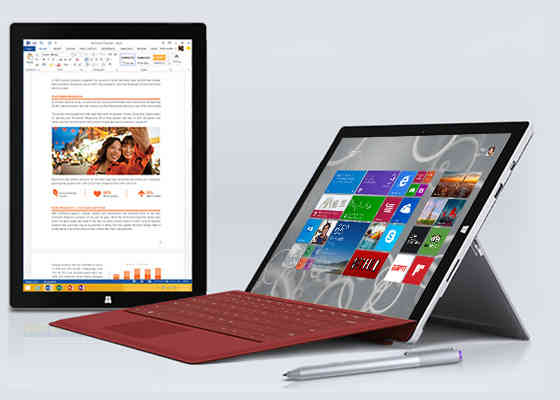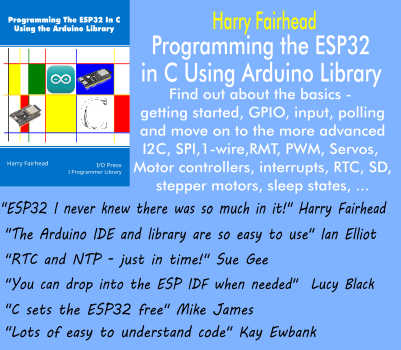| Is The Future Of Windows RT In Doubt? |
| Wednesday, 21 May 2014 | |||
|
Microsoft launched a new Surface tablet, the 12-inch Surface Pro, but at the same event there was no sign of the expected 8-inch mini. Could this mean that the tide is turning against Windows RT? If so in favor of what exactly? Yes this is speculation - but it is based on the few known facts and what makes sense.
Windows 8 comes in two flavors - the usual Windows 8/8.1 which runs on Intel processors and Windows RT which runs on ARM. Both support the new touch centric WinRT style of app, but Windows RT doesn't support the full desktop Win32 API that most users associate with Windows. If you are confused so are users and the naming doesn't help to avoid the confusion. The point is that Windows RT is a way of getting Office, largely unmodified, onto a tablet. Windows RT runs Office as a desktop app but not much else. It was expected that Microsoft would announce an 8-inch Windows RT tablet running on an ARM processor to complement the 12-inch Intel Windows 8.1 Pro. The rumors are that it was withdrawn at the last minute and the reasons being guessed at are that desktop Office wasn't easy to use on an 8-inch touch device. Another guess is that perhaps there are already enough small Windows devices available for Microsoft not to need to take a risk on launching another. Perhaps the best clue to what is going on its to look at what Microsoft is saying about the Surface Pro 3: "the tablet that can replace your laptop". It is light, fast and most important it uses an Intel Haswell processor and this means it can run full Windows 8.1. You can use it as a touch tablet with WinRT apps and when you need to do something more demanding you can run Desktop Win32 apps, adding a keyboard if you need to. In short, this is Windows 8.1 running on a touch device, which is what the operating system was designed to do.
Now consider the pitch for an 8 inch ARM tablet: "it can run WinRT apps and Office - but not any Desktop app you care to throw at it." Doesn't sound so attractive does it? And as a choice it doesn't have much to offer over an iPad or an Android. It is only when the full Windows experience is available does a Microsoft tablet have any sort of edge. Perhaps this is what is making Microsoft think again about supporting a cut down ARM version of Windows. What advantage does it provide to Microsoft? All the existing ARM tablets are happily running another OS and so there is no chance of getting users to migrate to Windows RT. If Microsoft is going to sell devices then, as long as the performance including battery life is good, the user really isn't going to care what processor is inside. Over time Intel has been catching up with ARM and now Microsoft can make Intel tablets that are just as good as ARM ones - so what need is there of Windows RT? But, I hear you ask, you still have the problem of Office on an 8-inch tablet. Desktop Office is too clunky for a small touch screen but Microsoft has been working on a touch version of Office for some time. So in a few months Microsoft could put together an Intel 8-inch tablet running Windows 8.1 or later with a touch-enabled version of Office running as a WinRT app. Microsoft could restrict the running of full Desktop Apps - after all they might give the small screen a bad reputation - or offer it as a premium add-on. Either way who needs Windows RT? This would be good news for programmers because, while there has been on explicit need to support it - Microsoft did the conversion to ARM code for you, the restriction on not being able to use the Win32 API is often a problem. It makes sense for Windows to stick with Intel and there is hardly any good reason for it to need to support ARM on the tablet and if we wait a few more months it will have little need to support ARM on the phone. Perhaps all it needs is Windows 8.x. One way to get a universal app is to kill off all the variations of the OS but one.
More InformationSurface Pro 3 The tablet that can replace your laptop. Related ArticlesWindows 8.1 No Longer Supported - UPDATE Windows Dev Center Open For Universal Apps Microsoft Rolls Out New App Pricing Microsoft Reveals "Universal" Apps Developers - Microsoft Is Back! Windows 8 Users Hardly Use Any Modern Apps How Microsoft Could Have Done Metro
To be informed about new articles on I Programmer, install the I Programmer Toolbar, subscribe to the RSS feed, follow us on, Twitter, Facebook, Google+ or Linkedin, or sign up for our weekly newsletter.
Comments
or email your comment to: comments@i-programmer.info |
|||
| Last Updated ( Wednesday, 21 May 2014 ) |



